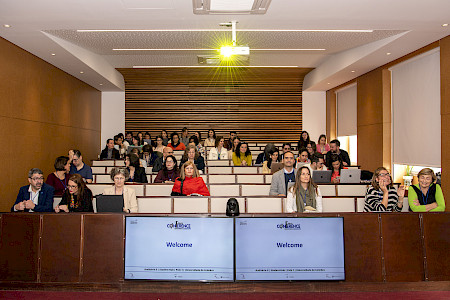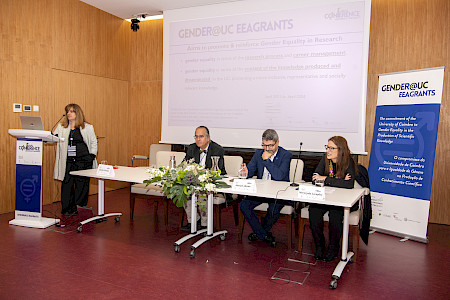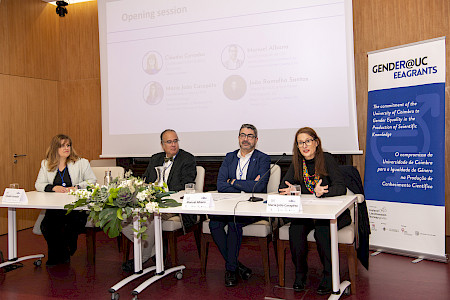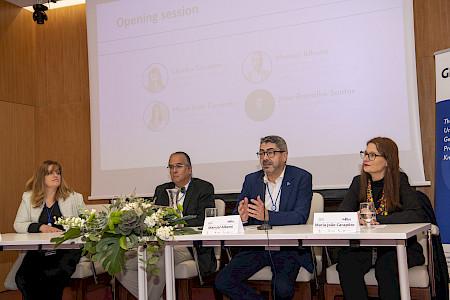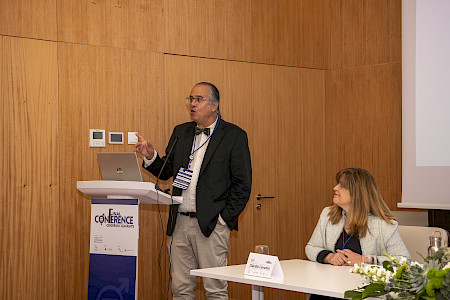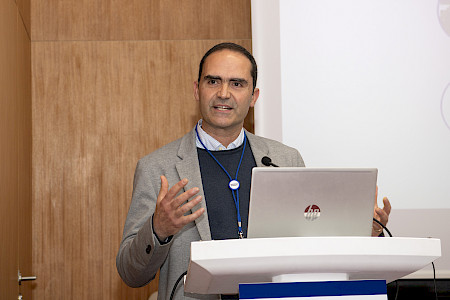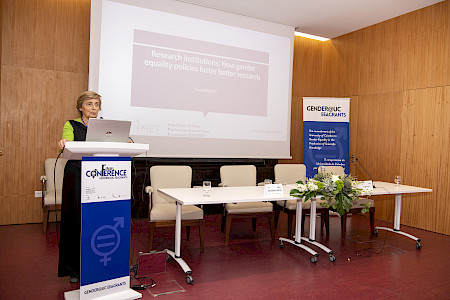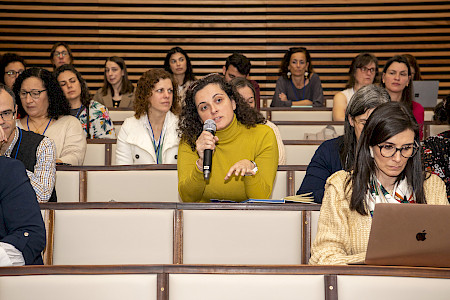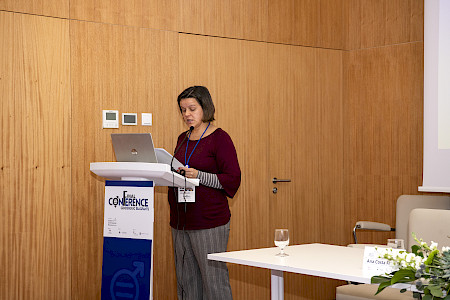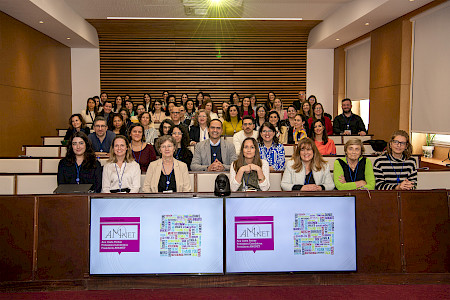University of Coimbra presents results of project promoting gender equality in research
‘GendER@UC’ was funded by the Conciliation and Gender Equality programme under the EEA Grants - European Economic Area Financial Mechanism 2014-2021.
The GendER@UC EEA Grants project was carried out by the University of Coimbra over the last three years, resulting in a guide for organizing inclusive scientific events and a handbook on inclusive communication in research. The final presentation of the project took place yesterday, the 21st.
Developed at the UC Institute for Interdisciplinary Research, under the coordination of researcher Cláudia Cavadas (in collaboration with several UC R&D units, the Centre for Social Studies, and the University of Iceland as partners), the project aimed to contribute to a more inclusive and diverse academic culture. Its objectives included removing barriers and promoting balanced participation of women and men researchers in teams, resource management, and decision-making processes. Additionally, it aimed to promote more inclusive, representative, and socially relevant knowledge.
During the presentation, Cláudia Cavadas emphasised that the project "addresses gender equality in research, career management, and the dissemination of knowledge on this matter at the University of Coimbra, promoting greater inclusion, representativeness and relevant societal knowledge".
The Deputy Coordinator of the EEA Grants National Focal Point in Portugal, Maria João Carapêto, stressed the importance of the project: "Portugal is the only country in the EEA Grants with a specific programme for gender equality, which, together with inclusion and diversity, is not only necessary but urgent in higher education institutions and the academic community", and should be a "daily commitment".
Throughout the three years of GendER@UC, approximately 350 people participated in face-to-face activities, including workshops and interdisciplinary training workshops. Outreach initiatives were also conducted in educational institutions across the central region of Portugal and at various events such as the European Researchers' Night, the Oeiras International Science Festival, and the International Symposium of the Portuguese Association of Women in Science.
João Ramalho-Santos, UC Vice-Rector for Research, remarked, "This project exemplifies collaboration among financial, government, research institutions, and universities. The only path for progress is to sustain active engagement," highlighting that the addressed topics encompass "democracy and human rights".
The project team also produced a set of working documents to facilitate the promotion of gender equality in scientific research. These include a Handbook for Inclusive Communication in Research and three guides covering the organization of inclusive scientific events, applications from Horizon Europe and guidelines for integrating the gender component into the processes of R&D units. These are all available at https://www.uc.pt/iii/gender/recursos/.
More information about the GendER@UC project is available https://www.uc.pt/iii/gender/.

